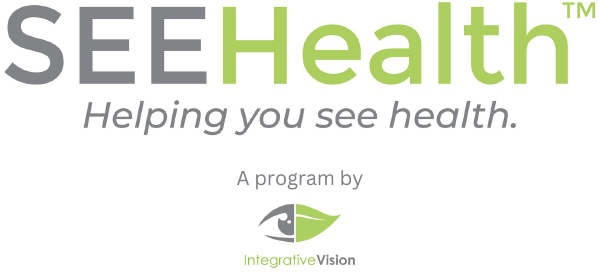At Integrative Vision here in Shrewsbury, our eye doctor’s passionate about answering all your vision-related questions. We understand eye floaters can be annoying and a cause for concern, especially if it’s the first time you notice them.
You want to know if they’re normal or if your vision’s at risk — we completely understand and happily report that most of the time it’s a normal aging process. A jelly-like substance in the back of our eyes, called vitreous, alters as we age (yup, just like everything else).
Today we cover, what causes them, why you see them, when eye doctors consider them a medical emergency, and ways to minimize seeing them!
What Causes Eye Floaters and Why Do You See Them?
As your vitreous gel changes over time, it gets thicker or becomes more liquidy. Although a normal aging process, these changes cause tiny pieces to detach from the back of the eye. They are left “floating” inside the back of your eye.
Eye floaters usually happen aging changes in the retina and don’t require medical intervention. But sometimes, conditions like myopia (nearsightedness) can make you more prone to floaters because of the shape of your eye. (Keep reading to learn when floaters are a medical emergency.)
Floaters come in all shapes and sizes, like:
- Strings
- Dots
- Lines
- Blobs
- Specks
- Cobwebs
While it feels like you can grab them, they’re floating around inside your eye. What you’re seeing is actually a shadow. When light hits the retina, a sensitive layer lining your eye, floaters block that light from fully entering the eye. So those tiny particles come between you and clear vision.

Image: American Academy of Ophthalmology
You can’t swat them away or catch them, and might notice them more when you move your eyes around. It’s kinda like shaking up a snowglobe. You tend to notice them a lot in the morning after sleeping or in their bathroom. A lot of bathrooms use white as the main color, and that contrast makes your floaters more noticeable.
When Are Floaters A Medical Emergency?
While it’s reassuring that most floaters aren’t a cause for concern, you want to know when they are. Your eyesight’s precious and it can feel scary when something’s going on with your eyes. When you have accurate information, you’ll be prepared for those unforeseen emergencies.
Floaters become a medical emergency if:
- You experience a new onset of lots of floaters
- You have way more floaters than you normally notice
- You see flashes of light
- Either side of your vision becomes dark (shadow)
Call our office immediately if you’re experiencing any of these symptoms: 732-389-2792
Each concerning sign could mean something’s going wrong in the back of your eye. These symptoms point to a retinal tear or detachment — both sight-threatening conditions. If the retina pulls away from the back of the eye, it’s unable to detect light and needs prompt treatment from an eye specialist.
 Don’t wonder if your vision’s at risk if you have these symptoms. Our caring optometrist, Dr. Gioia, will ease your concerns and get you into a specialist immediately if needed. If your eye condition needs an ophthalmologist, she knows the best in the Shrewsbury area.
Don’t wonder if your vision’s at risk if you have these symptoms. Our caring optometrist, Dr. Gioia, will ease your concerns and get you into a specialist immediately if needed. If your eye condition needs an ophthalmologist, she knows the best in the Shrewsbury area.
3 Ways To Reduce How Many Floaters You See Naturally
When you get stuck with floaters, it’s really bothersome depending on your lifestyle. If you’re an artist, you may find them very distracting while working. Or if you’re an accountant looking at small numbers all day, you may even make a mistake. We understand those tiny shadows in your vision can be frustrating. Here are our simple solutions for this common nuisance.
3 ways to minimize your annoying eye floaters:
- Sunglasses change contrast which limits how often you may notice floaters. This change in lighting helps make your floaters less noticeable. You’re likely to notice eye floaters more on a bright sunny day or that lovely snowy white background we see every year.
- If you work on the computer, the same concept as sunglasses applies. Dimming your computer screen can lessen how often you notice floaters bouncing around.
- Large print books can help ease the strain for our avid readers, especially if you have bigger floaters that obscure your vision.

Try these tips to see if helps you!
It takes a bit for your brain to adjust to new floaters, but with time the majority of people don’t find them as irritating. An office visit with our eye doctor can ease your vision concerns regarding floaters.
Don’t Stress About Floaters — Get Reassurance & More At Integrative Vision
We provide top-notch eye care services to the residents of Lincroft and Eatontown, NJ. You truly shouldn’t stress about eye floaters or worry about your vision. Our devoted eye doctor will make sure you’re not at risk of losing your sight.
An eye exam provides immense details about the health of your eye and overall body. It’s so much more than a new pair of glasses or contacts (although we know that’s important too).
Dr. Gioia’s so passionate about health, she pursued further education in nutrition and functional medicine to offer you more at her optometry practice in Shrewsbury.
If you’re also passionate about health and nutrition, check out our SEEHealthTM nourishment program or Eye Exam PlusTM. Both offer unique additions to your standard eye exam — and promote healthy choices for your eyesight and overall health.




